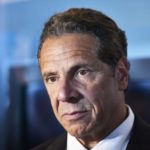The global financial system is facing a considerable amount of uncertainty at present, perhaps more than at any other time in recent history. Not since the end of World War II, when the current international norms and trade relations were established, has there been so much uncertainty.
Donald Trump has expressed an interest in renegotiating the North American Free Trade Agreement (NAFTA). This has been much more heavily published than his concurrent desire to also renegotiate to US-Korea Free Trade Agreement (KORUS), and also the Trans-Pacific Partnership (TPP), which mostly concerns trade with Japan.
Many people feel that the fate of the World Trade Organization (WTO) is currently hanging in the balance. 2018 could be the year that sees a great upheaval of our current financial system.
The Challenges
There are a number of rapidly advancing technologies which pose a potential threat to the stability of the current global financial system. The current state of the Western liberal democracies, facing off against a wave of populism and anti-globalization, is another significant source of uncertainty and instability in the current system. The WTO ministerial meeting in Argentina last December ended in indecision. However, a consensus has emerged around the role of Donald Trump, and his policies designed to reverse the United States’ historical world in the international order.
The United States has, historically, spearheaded every push for the liberalization of global trade laws. There are worries that if the United States pursues a more isolationist policy, it will lead to more global instability. The last time the United States pursued a policy of isolationism was just prior to the outbreak of World War II.
Trump’s apparent opposition to the current US-led system leaves the world in a state of uncertainty. Trump even recently touted the apparent benefits of instigating trade wars with other nations.
Public Perceptions
Numerous studies and analyses suggest that the American public, quite wrongly, blames the current trade system for many of their woes. In the past, trade has certainly been a significant factor in determining the quality of life for the average person. In today’s world, it is automation that represents the greatest impetus for change in the trade system.
If you are interested in economics and would like to understand the complexities of how it impacts the world around you, consider studying online for an MSF degree. Northeastern University is one of the many leading universities to offer the degree through their online arm, in this case, Northeastern Online.
Other technologies, such as digital commerce, also have the potential to disrupt the trade system. An increasing awareness of environmental obligations and an expanding array of technologies to allow us to meet them means that the global trade system is increasingly having to adapt to shifting priorities.
The Future
If Trump decides to pursue his proposed tariffs, irrespective of the wider consequences, then the global economic system will enter a period of chaos and uncertainty. While Trump has been vocal in his opposition to many of the trade deals that the US has signed in recent times, he has yet to act on these intentions. However, the potential ramifications of an all-out trade war are devastating for everyone.
The global trade system has entered new and uncharted waters with Trump at the helm of the world’s largest economy. Should Trump follow through with many of his threats, the United States will find itself increasingly isolated and irrelevant on the world stage.




